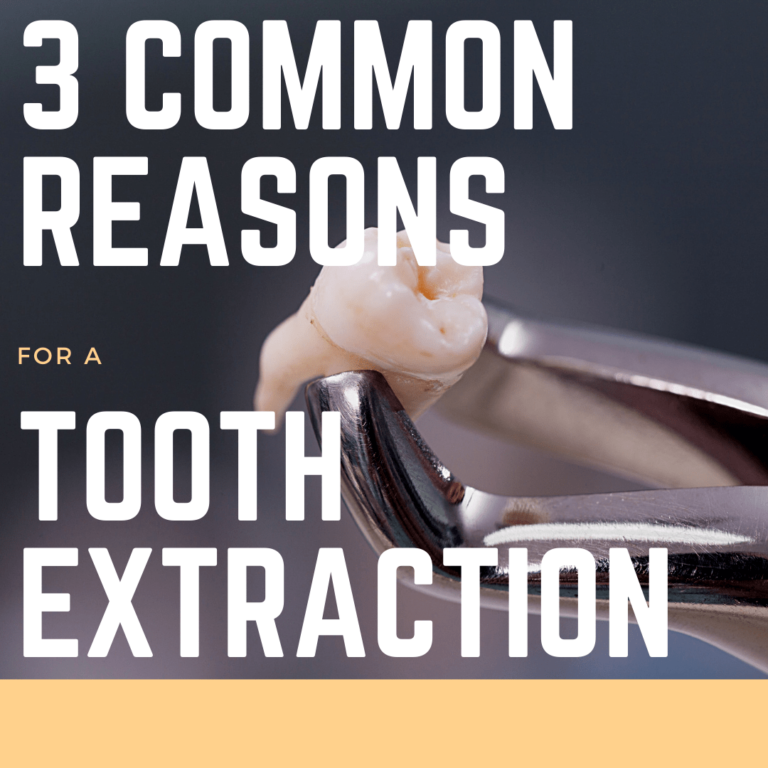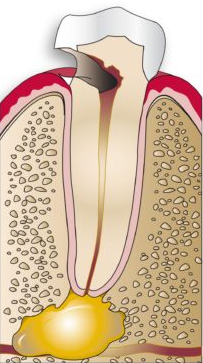3 Common Reasons for a Tooth Extraction

Tooth extractions are dental procedures that remove teeth from the mouth that are severely decayed or damaged. Although this may sound like a nightmare to many, dental anesthetics and sedation are often used so that the patient will not feel or remember anything. In most cases, the patient will feel better than they did before the extraction, once the mouth has healed.
There are two different types of extractions that may be performed depending on the state of the tooth in need of extraction. A simple extraction uses forceps to remove the entire tooth in one piece, while a surgical extraction breaks the tooth into smaller pieces before removing every piece individually. Simple extractions are used when the tooth is entirely intact and above the gum line. Surgical extractions are used when the tooth is partially or fully impacted, or is not able to be removed all at once.
Nobody wants to hear that they need a tooth extraction. However, sometimes tooth extractions are necessary to preserve or restore your oral health. In these cases, putting off a tooth extraction can make the problem worse and lead to more substantial treatment in the future. Here are three common reasons why you may need a tooth extraction:

Overcrowded Teeth
Overcrowding can occur when there are simply too many teeth for the size of your mouth. In most cases, overcrowding is the result of wisdom teeth eruption, but it can also occur without any cause. When teeth are overcrowded, they will often overlap each other or erupt improperly. This can cause an increased risk for tooth decay, gum disease, damage, or overall discomfort. For these reasons, a varying number of teeth will be extracted to create additional space in the mouth. Extractions for overcrowding are usually followed by orthodontic treatment in order to correctly align the remaining teeth.


Severe Tooth Decay
In severe cases of tooth decay, bacteria can infect the tooth roots and cause an abscess. Sometimes this can be treated with endodontic surgery and other times it requires the affected tooth to be extracted. Teeth with severe tooth decay are also extracted if the dentist believes that they can spread the infection to other teeth around them. Additionally, if the decay is severe enough that it cannot safely be treated with other restorative methods, then the tooth will need to be extracted.

Wisdom Teeth
While not all wisdom teeth must be extracted, most people will need to have their wisdom teeth extracted. This can either be because newly erupted wisdom teeth can cause overcrowding or because the wisdom teeth are impacted. Impacted wisdom teeth are those that are unable to fully erupt from the gum line. Wisdom teeth that are impacted can cause a number of complications including infection, swelling, pain, and damage to the surrounding teeth. For these reasons, wisdom teeth are usually extracted. For more information, see “Can I Keep My Wisdom Teeth?”
Ultimately, tooth extractions can be performed in cases where the teeth are overcrowded, severely decayed, or impacted. All three of these common reasons can negatively impact oral health more than simply removing the affected tooth. In these cases, tooth extractions become a necessary dental treatment that benefits the overall oral health of the patient.

Dr. John Batlle attended the UF College of Dentistry where he received his Doctor of Dental Medicine degree in 1983. After graduating, he worked for the State of Florida and received his commission in the Navy Reserve Dental Corps. He was deployed to Guantanamo Bay, Cuba in 2002 where he served as the dentist for Detainee Operations and Navy Hospital GTMO. He recently retired from the U.S. Navy Reserve after 26 years of service.

